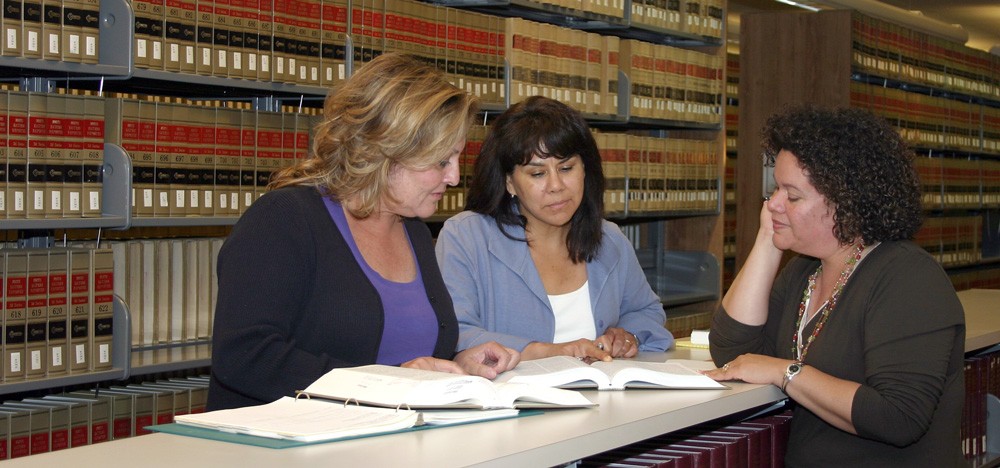What is a Paralegal?
California Business and Professions Code Section 6450(a) defines a paralegal: “Paralegal means a person who holds himself or herself out to be a paralegal, who is qualified by education, training, or work experience, and who either contracts with or is employed by an attorney, law firm, corporation, governmental agency, or other entity, and who performs substantial legal work under the direction and supervision of an active member of the State Bar of California . . . or an attorney practicing law in the federal courts of this state, that has been specifically delegated by the attorney to him or her.”
What do Paralegals do?
Paralegals handle different tasks depending on the area of law they are involved in. Some examples of the duties they perform are interviewing witnesses; case planning; drafting and analyzing legal documents; researching; writing briefs; memorandums; and agreements; preparing court documents; analyzing assets and administering estates; and representing clients before administrative agencies if that representation is permitted by law. They may not provide legal advice, represent a client in court, or set legal fees, and they must be supervised by an attorney.
Where are Paralegals employed?
Paralegals are employed in private law firms, banks, corporations, insurance agencies, legal clinics, courts, government agencies, accounting and engineering firms, title companies, construction companies, and legal aid offices; in fact, almost everywhere law-related work is performed.
How much do they earn?
Salaries vary widely depending on the education and experience of the paralegal, the type of employment and the location of the job. Those working in metropolitan areas earn more than those in more rural areas. Beginning annual salaries can start from around $20,000, with some experienced paralegals earning $50,000 to $98,000. Per the National Federation of Paralegal Associations (NFPA) 1997 salary survey, the national average is $34,514. In January 2001, the Los Angeles Paralegal Association (LAPA) reported in a salary survey in Los Angeles County that entry-level paralegals were earning between $26,400 and $45,600 while experienced paralegals had a range from $18,000 to over $100,000. The median salary was $49,500.
What type of education is required?
Currently, approximately 85% of all paralegals receive some formal paralegal education. Paralegal education was first taught in 1968, and by 1971 there were eleven paralegal programs in the U.S. The University of La Verne’s program began in 1972. Currently there are between 500 and 650 programs.
Paralegal programs can be either two-year community college programs, usually awarding a certificate or an associate degree; four-year baccalaureate programs with a major or minor in paralegal studies; programs offered by proprietary institutions, usually 3 to 18 months in length; or post-baccalaureate programs, usually 3 to 12 months in length, awarding a certificate.
More and more, the baccalaureate degree is becoming the requirement for employment, unless a person has prior applicable experience. Both NFPA and LAMA (the Legal Assistant Management Association) recommend a four-year degree. The LAPA survey found that 43% of the paralegals in Los Angeles County have a bachelor’s degree. However, many markets still accept an associate’s degree or a certificate in paralegal studies.
The University of La Verne Legal Studies Program offers a Bachelor of Science in Legal Studies and a Certificate in Paralegal Studies. The certificate is offered to those students who have a bachelor’s degree or 60 semester units of college work including 18 units of general education in specific areas.
What is the job outlook for paralegals?
For an analysis and review of the paralegal career, check out the U.S. Bureau of Labor Statistics: https://www.bls.gov/ooh/legal/paralegals-and-legal-assistants.htm
Who are La Verne’s students?
La Verne’s paralegal students come from a variety of backgrounds. Many are students who have worked for some time and may be seeking a career change, advancement, or improvement of skills. Others are transfer students from community colleges or students straight out of high school. The diversity among the paralegal student population is very great as to race, ethnic origin, age, and sex.
The University of La Verne is accredited by the Accrediting Commission for Senior Colleges and Universities of the Western Association of Schools and Colleges.
